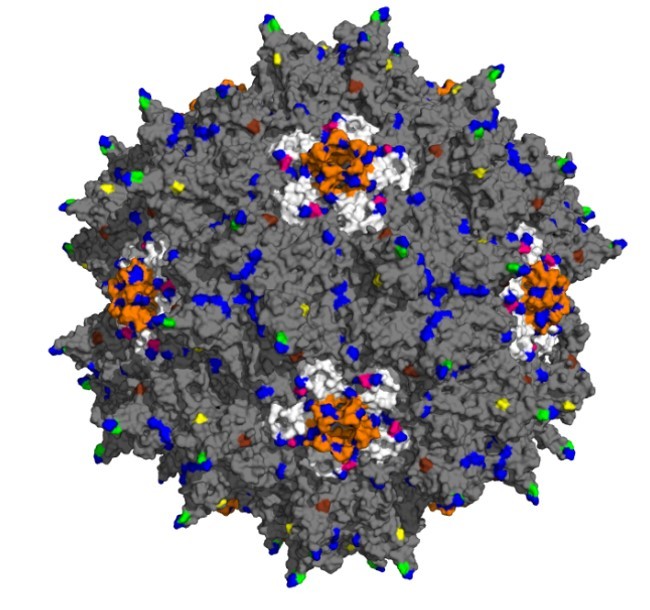 The Adeno-associated virus (AAV)
The Adeno-associated virus (AAV)The promise of anti-cancer vaccines
Cancer is considered one of the most frequent causes of death with the risk of diagnosis increasing with age. The current aggressive treatments for cancer, such as vigorous surgery, chemotherapy and radiation, are largely successfully but invasive and extremely toxic to the normal tissue, such as blood, digestive tract or nervous system.
Historically, vaccination represents one of the greatest successes of medicine in controlling infectious diseases, such a chickenpox, hepatitis or flu. One of the major problems correlated with cancer development is the failure of the patient`s immune system to control tumor growth. The anti-cancer vaccine approach would take advantage of the natural ability of the human immune system to recognize and eliminate cancer cells. Indeed, the development of a vaccine that can re-activate and re-direct the human host immune system toward the selective killing of cancer cells could be an attractive alternative to the current treatments.
In our studies we like to employ a virus for delivering the anti-cancer vaccine. Viruses have an exceptional ability to effectively deliver therapeutic drugs into human cells. The virus we use is a naturally occurring human Parvovirus, called Adeno-associated virus (AAV). This virus is the most suitable for this purpose since there are no known diseases related to the infection of this unique virus. This feature of the AAV is very important because of safety concerns. Our ultimate goal is to develop efficient methods for the activation of a cancer patient`s immune system and redirect an immune response to the specific killing of cancer cells, with minimal side effects on normal tissues. Importantly, the development of an anticancer vaccine that could directly activate the host immune system, would streamline cancer treatment procedures to a simple “needle injection”, which would also radically reduce the cost of treatment. Another significant advantage of anti-cancer vaccines is that the lack of additional toxic effects of the treatment would significantly improve a patient`s quality of life and shorten the recovery time.





Please sign in or register for FREE
If you are a registered user on Research Communities by Springer Nature, please sign in
Promising work, especially in light of FDA-approved AAV gene therapy entering the U.S. market early this year to restore vision in patients diagnosed with biallelic RPE65-mutation-associated retinal dystrophy.